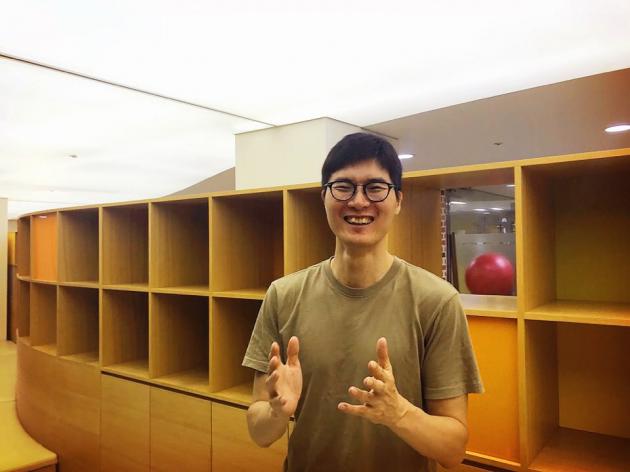The human DNA consists of about 3 billion bases – one mutation could cause a rare disease that takes an average of five to 20 years to diagnose. Rare disease affects fewer than 1 in 2,000 people. About 7,000 kinds exist.
Korean bioinformatics firm 3billion offers a solution that scans for DNA mutations and help physicians diagnose rare diseases faster and more accurately not just for wealthy celebrities but also for the general public.
The Macrogen spin-off created by CEO Keum Chang-won in November 2016 aims to offer its genomic decrypting and analyzing service first to hospitals and physicians, targeting the B2B market before moving to the B2C market.

The service requires a saliva sample that is sent into Macrogen, which creates the genomic data. 3billion then uses its AI-based software to interpret and analyze the information to produce possible diagnoses for the physician. Next-generation sequencing technology examines each mutation, linking it to related studies, and to the 5,000 rare diseases.
Keum, an entrepreneur with extensive background knowledge of bioinformatics and computational biology, noted that the rare disease market is underserved.
“The biggest problem of rare diseases is that they’re difficult to diagnose. Diseases physicians see in hospitals are extremely common – chronic diseases and cancer, for example. Rare diseases fall out of this category, and a doctor probably sees maybe one or two cases in their entire career, Keum said in an interview with Korea Biomedical Review.
One doctor can’t know about every disease. It’s why it takes an average of 5 years for rare disease patients to get a diagnosis. Around 30 percent can’t get a diagnosis even after five years, he added.
Rare disease patients often spend an insurmountable sum on genetic tests and medical examinations in the process.
“Genetic tests are fundamentally single genetic tests. Reading one gene takes $4,000. For Angelina Jolie, it cost as much to examine the breast cancer gene. In the early 2000s, it was in the $3 billion range.
“Price fell drastically in 2008 to about $1 million. It fell to $1,000 in 2015 - so the market effectively opened in around 2016. For us, it’s only been two years – and our service looks at 20,000 genes at a much lower price,” Keum said.
The Seoul-based firm provides a one-stop DNA examination that eliminates the need for other genetic tests and touts a 50 percent diagnosis rate, which is higher than the 25 to 40 percent accuracy rate by doctors. Detection rates are also higher than other firms, Keum explained.
It’s faster, too, because the service utilizes AI technology, the entire examination process takes around one to two hours whereas it takes about 20 to 40 hours for competing products or physicians to complete the same process.
By using innovative software and maintaining low genomic decryption costs through partnerships with Macrogen, 3billion aims to provide the test at about $500 for consumers and about $1,000 to $2,000 for hospitals, making it accessible to the general public, the CEO said.
Last year, the firm conducted a beta test in U.S. patients, discovering a genetic mutation that leads to symptom onset in about 65 percent of patients – a rate higher than the 25 to 40 percent success rate of diagnosing rare diseases.
The firm, which recently completed series A funding by securing 3 billion won, is now looking to expand its company size and reach. 3billion is targeting foreign markets such as the Middle East and Europe. The company partnered with 17 hospitals in Korea and abroad and validation tests for the service are underway, Keum said.
Keum is looking to make an initial public offering by 2022.
“3billion aims to shorten the time it takes to diagnose the disease for rare disease patients and thereby lower medical costs for both patients and physicians.”

